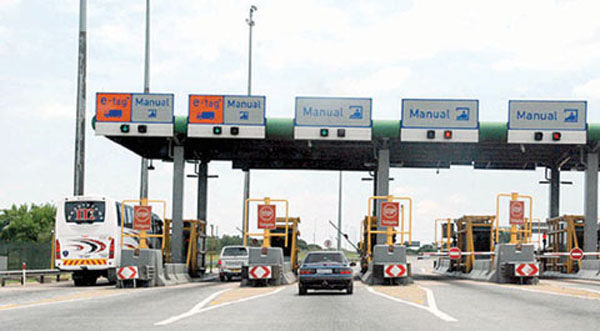Border Closure Likely Trigger For Clampdown on Nigerian Businesses in Ghana

The dispute over the closure of shops owned by Nigerian traders in Ghana may have been triggered by the closure of Nigerian land borders in November, 2019, which has hurt its West African neighbours.
Ghana’s Minister of Foreign Affairs and Regional Integration, Shirley Ayorkor Botchwey, suggested this in reaction to the comment of her Nigerian counterpart, Geoffrey Onyeama on the dispute.
In a thread of tweets, the minister said that she had summoned the Nigerian Chargé d’Affaires to Ghana, Esther Adebola Arewa, in relation to comments made by Onyeama, in which he said the Ghanaian government was harassing Nigerian traders for 2020 electoral gains.
Botchwey said if this were true, it would be “most unfortunate as relations between our two countries have always been strong.
“The question he is alleged to have asked about the essence of an Economic Community if at the end of the day we cannot trade, is a good one. I believe that countries from time to time must take hard decisions to make policy or enforce laws.”
The ECOWAS Protocol on the Free Movement of People and Goods allows the free movement of citizens of member states, but also states that member states also have the right to “refuse admission to any community citizens who were inadmissible under the member states own domestic law.”
Botchwey said the border closure by Nigeria without notice to community trade brought many Ghanaian exporters to their knees, with their trucks stuck at the Seme Krake border.
The Nigerian government introduced the policy in August, 2019, to stop the smuggling of arms and goods to enhance national security and help grow local industries, especially in the agriculture sector.
This action was followed by a trip by the Ghanaian trade minister Alan John Kyerematen, and the foreign minister in efforts to create a safe corridor for Ghanaian goods to enter Nigeria. The talks did not help the situation in any way, prompting the Ghanaian government to take the matter in their own hands to rescue their affected traders.
“On 10th August, 2020, a 6-week nationwide exercise including market visits to assess business operating documents of traders in Ghana took off,” Botchwey said.
This exercise prompted the second wave of Nigerian shop owners having their shops closed for not duly registering their businesses with the Ghana Investment Promotion Council (GIPC).
According to Botchwey, the exercise which is due to be completed in September, is not intended to target traders from any country.
Early in August, Ghana began a follow-up on registration of businesses in the country resulting in the forcible closure of shops belonging to Nigerians.
A similar incident had happened in June 2019, where Nigerian shops were forcibly shut, with some deported back home
The attacks on Nigerians business owners had begun to put strain on the existing relationship between the West African bigwigs.
In June, gunmen demolished a building belonging to the Nigerian High Commission in Accra for which the Ghanian government later apologised.
Support Our Journalism
There are millions of ordinary people affected by conflict in Africa whose stories are missing in the mainstream media. HumAngle is determined to tell those challenging and under-reported stories, hoping that the people impacted by these conflicts will find the safety and security they deserve.
To ensure that we continue to provide public service coverage, we have a small favour to ask you. We want you to be part of our journalistic endeavour by contributing a token to us.
Your donation will further promote a robust, free, and independent media.
Donate HereStay Closer To The Stories That Matter




